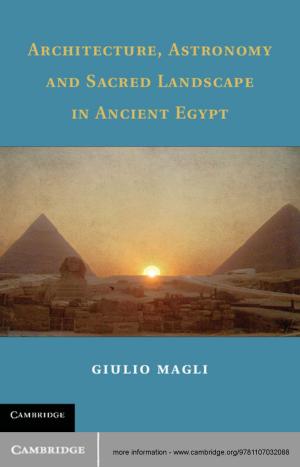Ancient Greek Music
A New Technical History
Nonfiction, Art & Architecture, General Art, Entertainment, Music, History| Author: | Stefan Hagel | ISBN: | 9781139248662 |
| Publisher: | Cambridge University Press | Publication: | December 17, 2009 |
| Imprint: | Cambridge University Press | Language: | English |
| Author: | Stefan Hagel |
| ISBN: | 9781139248662 |
| Publisher: | Cambridge University Press |
| Publication: | December 17, 2009 |
| Imprint: | Cambridge University Press |
| Language: | English |
This book endeavours to pinpoint the relations between musical, and especially instrumental, practice and the evolving conceptions of pitch systems. It traces the development of ancient melodic notation from reconstructed origins, through various adaptations necessitated by changing musical styles and newly invented instruments, to its final canonical form. It thus emerges how closely ancient harmonic theory depended on the culturally dominant instruments, the lyre and the aulos. These threads are followed down to late antiquity, when details recorded by Ptolemy permit an exceptionally clear view. Dr Hagel discusses the textual and pictorial evidence, introducing mathematical approaches wherever feasible, but also contributes to the interpretation of instruments in the archaeological record and occasionally is able to outline the general features of instruments not directly attested. The book will be indispensable to all those interested in Greek music, technology and performance culture and the general history of musicology.
This book endeavours to pinpoint the relations between musical, and especially instrumental, practice and the evolving conceptions of pitch systems. It traces the development of ancient melodic notation from reconstructed origins, through various adaptations necessitated by changing musical styles and newly invented instruments, to its final canonical form. It thus emerges how closely ancient harmonic theory depended on the culturally dominant instruments, the lyre and the aulos. These threads are followed down to late antiquity, when details recorded by Ptolemy permit an exceptionally clear view. Dr Hagel discusses the textual and pictorial evidence, introducing mathematical approaches wherever feasible, but also contributes to the interpretation of instruments in the archaeological record and occasionally is able to outline the general features of instruments not directly attested. The book will be indispensable to all those interested in Greek music, technology and performance culture and the general history of musicology.















